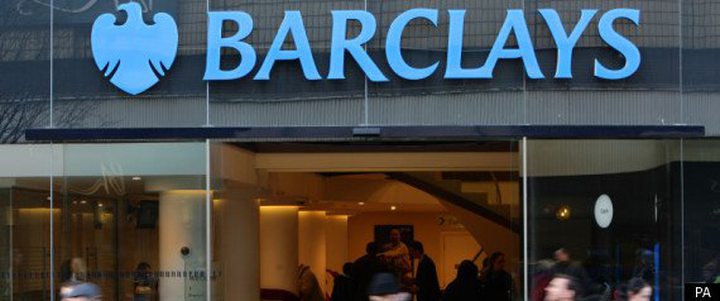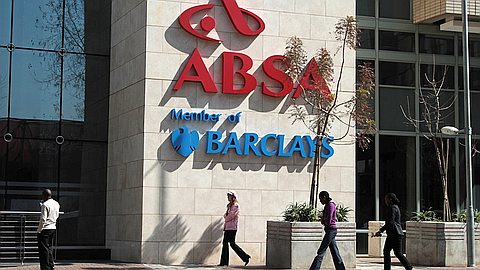Barclays in Mauritius, It's About Legal Safety Just as Much as Tax Avoidance

There’s two reasons why they are wrong in their concerns the first being a simple economic point, the second being a matter of realpolitik. The economic point is that companies don’t in fact pay tax, never, the realpolitik one is that investing from offshore is a great way of making sure that the domestic government doesn’t change the law retroactively and thus steal what you’ve so carefully invested in.
This time it is Action Aid making complaints about how Barclays promotes the use of Mauritius as a base from which to invest into either Africa or India. There’s a press release here:
“ActionAid is now demanding that Barclays honours its commitment to change and specifically to close down its Offshore Corporate department, which it uses to promote tax havens to big businesses in Africa.
Tax avoidance and the kind of practises that are frequently used in tax havens have been strongly condemned by former UN Secretary General Kofi Annan who stated that it was “unconscionable” that companies were aggressively avoiding tax “while millions of Africans go without adequate nutrition, health and education.”
The actual report is here:
“The first of these is the Offshore Corporate division of Barclays’ International Wealth and Investment Management. Offshore Corporate is promoting a “proposition” to African businesses built around its extensive presence in Africa and its ability to link companies and investors in Africa with Barclays’ operations in offshore locations, all of which offer low taxation and favourable tax regimes. The second example we found relates to Barclays operations in Mauritius, where Barclays has publicly presented itself as the “pioneer of offshore” and is actively encouraging companies to set up subsidiaries in Mauritius as a route for channelling investment into Africa. In its promotional materials Barclays highlights the “favourable local tax regime” in Mauritius and the extensive network of double taxation treaties that Mauritius holds with many countries, including African ones.”
They then go on to point out that these corporations using these offshore centres are not paying corporate taxes where they make their investments and that this is in some manner a terrible thing.
However, to the economic point. Companies never pay corporate taxes, this is something we’ve known for over a century. All taxes mean that the wallet of some live human being becomes lighter: the study of whose is known as “tax incidence”. In the case of corporation tax (or in American, the corporate income tax) it is either the wallets of the shareholders that become lighter or those of all the workers in that taxing jurisdiction. This is because the more you try to tax the profits from investment the less investment there will be. As average wages in an economy are determined by average productivity in that economy, less investment will lead to lower productivity. Thus lower wages for all in that economy.
We also know what determines that split between shareholders and workers. The smaller the economy relative to the world economy the more the workers carry the burden. Also, the more mobile capital is the higher that burden on the workers. Indeed, Atkinson and Stiglitz (yes, Joe, the one with the Nobel) showed back in the 80s that the burden of such a tax can be over 100%. That is, it is possible for the workers to lose more in lower wages than the revenue raised by the tax.
In these developing economies that we are talking about of course they are tiny relative to the global economy. Other than South Africa there’s not a Sub-Saharan economy that would match a London Borough in size. Given that we are talking here about foreign investment into these economies as well we can see that the burden of such corporate taxes is very much going to rest on the workers, in those lower wages. And it’s possible that the burden will be more than 100% of the tax actually raised.
So their basic contention that these corporates should pay more tax to these African economies seems like a very bad idea indeed. Economically illiterate even, given that the burden is certainly mostly on the wages of the poorest of the poor and possibly entirely so.
But there’s also that realpolitik reason for using an offshore centre as the vehicle for such investments. Have a look at what happened in India to Vodafone:
Vodafone has long contested the Indian government’s stance that it should have deducted tax on its purchase of a majority stake in the Indian operations of Hong Kong’s Hutchison Whampoa Ltd. In January last year, the Supreme Court of India sided with the U.K.-based company, saying it needn’t be taxed as the transaction was between two foreign companies.
Still, India went ahead and changed its taxation laws in March last year, essentially overturning the Supreme Court judgment and putting under scrutiny similar deals involving multinational companies.
So do you want to make multi-billion investments in a place where they can and will change the law to tax you whatever they want? Probably not actually: which is a reason to use those offshore legal jurisdictions. You invest through a country where you can trust both the court systems and the political system to protect you. In the various investment treaties you will often find a clause which insists that legal matters must be dealt with in courts outside of the taxing jurisdiction. So, outside the vagaries of the court or political systems of the country that wants to levy the taxes.
To paraphrase PJ O’Rourke here, you don’t want the people able to change the law to also be the people calculating your tax bill.
An example of this might be the Greek government bond haircut. Those who had bonds issued under Greek law found the law changed on them so that they had to take 70% haircuts. Those with bonds issued under English law got paid in full, 100%. Because the Greek government couldn’t change English law.
All of which leads us to one extremely good reason why people invest in certain countries through a vehicle not based in said country. So that they can be assured of getting a fair shake under the law. And then of course we have that economic point, which is that these various NGOs are simply promoting a very bad idea indeed, the idea that governments should be depressing the wages of their own poor citizens by trying to tax the profits of inward investment. It’s almost as if they have no clue about the economics of taxation which is odd for people trying to tell us how the tax system should work.





